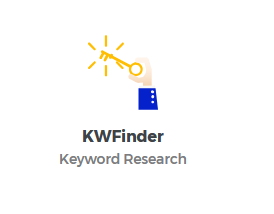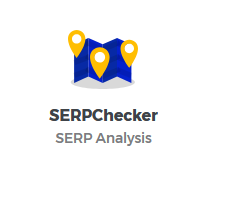When it comes to affiliate marketing, keywords are like little treasure maps that lead potential customers to your website (and ideally, your affiliate links). But here’s the catch: not all keywords are created equal, and some can lead to a dead end if not chosen wisely. So, how do you identify the right keywords to target the right affiliate products? That’s where tools like Mangools come into play.
In this post, we’ll explore how to use keyword research to boost your affiliate game, ensure those clicks turn into conversions, and take a deep dive into Mangools as your go-to tool for keyword magic. Ready? Let’s crack the keyword code!
An overview of the most important points:
- Why Keywords Matter: Keywords help you target search intent and connect users with the products they need.
- Types of Keywords to Focus On: Understanding the difference between commercial, informational, and long-tail keywords.
- How to Use Mangools for Keyword Research: Mangools makes it easier to find profitable keywords with high search volume and low competition.
- Keyword Placement: Where to sprinkle those keywords on your page to make Google (and readers) happy.
- Monitoring and Adjusting Keywords: SEO is a marathon, not a sprint. You’ll need to track and tweak your keywords regularly for best results.
Why Keywords Matter
Imagine walking into a huge store with everything you need but no signs or directions. It would take forever to find what you’re looking for, right? Well, that’s what the internet feels like without keywords. Keywords act as signposts guiding search engines and potential customers to your site, and most importantly, to the affiliate products you’re promoting.
When people type in a search query, they’re often looking to solve a problem or find a solution. If your site’s keywords match that query, congratulations—you’re in the running to grab that searcher’s attention! But it’s not enough to just choose any old keywords. You need to focus on relevance and intent.
For affiliate marketers, keywords can mean the difference between a casual browser and a serious buyer. That’s where strategic keyword research comes into play.
Types of Keywords to Focus On
Not all keywords are created equal, and they each have a different role in your SEO strategy:
- Commercial Keywords: These are buyer-intent keywords—people who search for these terms are likely ready to make a purchase. For example, phrases like “best running shoes for beginners” or “cheap noise-cancelling headphones” show that the user is looking for a product recommendation. These are perfect for affiliate marketers.
- Informational Keywords: These queries are often educational and less purchase-focused. Think of things like “how to clean white sneakers” or “what is the best way to travel with headphones.” These can still be useful because they help build trust with your audience and establish your site as an authority.
- Long-Tail Keywords: These are more specific, often longer search terms with lower search volume but higher intent. For instance, “best noise-cancelling headphones for airplane travel under $100” is more specific (and likely less competitive) than just “noise-cancelling headphones.” The beauty of long-tail keywords is that while fewer people search for them, the ones who do are usually much closer to making a decision.
How to Use Mangools for Keyword Research
Now, let’s talk about Mangools, one of the friendliest keyword research tools on the market. Not only is it beginner-friendly, but it’s also packed with powerful features that make keyword research a breeze.

Here’s a quick guide to using Mangools to find high-quality keywords for your affiliate marketing:
Start with KWFinder: Mangools’ KWFinder tool is excellent for uncovering keywords with good search volume and low SEO difficulty. Simply enter a seed keyword related to your affiliate niche (like “running shoes” if you’re promoting sports gear). You’ll get a list of suggestions, complete with search volume, difficulty scores, and cost-per-click (CPC) information, which is particularly handy for affiliates targeting high-revenue products.

Analyze Competitors: Mangools lets you check out what keywords your competitors are ranking for. By plugging in a competitor’s domain, you can see which keywords are driving traffic to their site. Find gaps where you can swoop in and outrank them with your own affiliate content.
Check the SERP: Mangools offers a SERP (Search Engine Results Page) checker to analyze the competition for specific keywords. You can see who’s ranking in the top positions and assess whether it’s worth competing for that keyword.

Local Keyword Research: If you’re targeting a specific geographic location, Mangools lets you focus your keyword research on different countries or even cities, helping you narrow down your audience. This is particularly helpful if you’re promoting products that might be region-specific.

Track Keyword Performance: With Mangools’ Rank Tracker, you can monitor how your keywords are performing over time. This way, you’ll know if you need to tweak your content or adjust your strategy for better results.
Keyword Placement: Where to Use Keywords on Your Site
Now that you’ve done your research, where do you put these golden keywords? Well, Google and your visitors both appreciate a natural flow, so avoid overstuffing keywords into your content. Instead, focus on placing them strategically:
- Title Tags and Meta Descriptions: This is the first thing people see in search results, so it’s essential to include your primary keyword here.
- Headings (H1, H2, etc.): Your page titles and subheadings should feature your target keywords to help search engines understand what the page is about.
- Body Content: Sprinkle keywords naturally throughout your content. Remember, write for humans first and search engines second!
- URL Slugs: Shorten your URL and include the main keyword in it. It makes your link both clean and SEO-friendly.
- Image Alt Text: Don’t forget that images also need love! Use keywords in your image alt text to improve search visibility.
Monitoring and Adjusting Keywords
SEO isn’t a set-it-and-forget-it process. The search landscape is constantly changing, and so is keyword performance. That’s why it’s crucial to regularly monitor how your chosen keywords are performing. You can do this using Mangools’ Rank Tracker or Google Search Console.

If a keyword isn’t performing as expected, don’t be afraid to experiment. Try targeting different variations, add more related content, or tweak your existing articles to better match user intent. And keep an eye on your competitors—if they start outranking you, it might be time to up your SEO game.
Target the Right Keywords for Affiliate Success
Keywords are the backbone of affiliate marketing success. By understanding the intent behind them, focusing on the right types, and using a robust tool like Mangools, you’ll be well on your way to targeting affiliate products effectively and seeing those conversions roll in.
If you haven’t already, give Mangools a spin here and start fine-tuning your keyword strategy today!

0 Kommentare